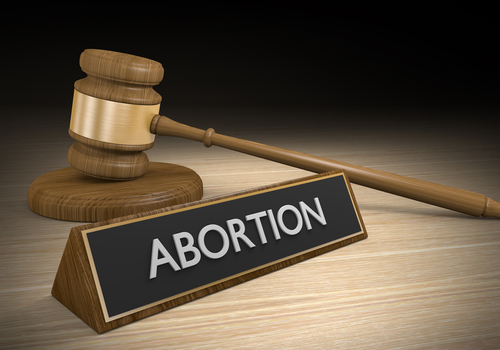8 Supreme Court justices agree Kentucky AG can intervene to defend restrictive abortion law

Image from Shutterstock.
U.S. Supreme Court Justice Sonia Sotomayor was the only dissenter when the high court ruled Thursday that Kentucky Attorney General Daniel Cameron can intervene to defend a restrictive abortion law.
Justice Samuel A. Alito Jr. wrote the majority opinion, joined by the court’s five other conservative justices, while Justices Elena Kagan and Stephen G. Breyer concurred in the judgment.
Cameron, a Republican, had sought to intervene after no other state official would defend the law, which generally banned dilation-and-evacuation abortions of a “living unborn child” after 11 weeks of pregnancy, according to Kentucky Today. His Democratic predecessor, Andy Beshear, had stopped defending the law before he was elected governor.
Cameron asked to intervene after the 6th U.S. Circuit Court of Appeals at Cincinnati affirmed a decision finding that the law was unconstitutional.
Alito noted that Beshear’s office agreed to be bound by any judgment in the case as a condition of his office’s dismissal as a defendant in challenges to the law. But his office had also reserved all rights, claims and defenses in any appeal.
“This language easily covers the right to seek rehearing en banc and the right to file a petition for a writ of certiorari,” Alito wrote.
In denying Cameron’s request to intervene, the 6th Circuit failed to account for the strength of his office’s interest in defending the bill, Alito said.
“In defending the Kentucky law, the attorney general asserts a substantial legal interest that sounds in deeper, constitutional considerations,” Alito wrote. “A state’s opportunity to defend its laws in federal court should not be lightly cut off.”
Sotomayor saw long-term consequences to the decision. “I fear today’s decision will open the floodgates for government officials to evade the consequences of litigation decisions made by their predecessors of different political parties, undermining finality and upsetting the settled expectations of courts, litigants and the public alike,” she wrote.
Sotomayor would have held that the federal appeals court acted within its discretion when it denied Cameron’s motion to intervene.
The case is Cameron v. EMW Women’s Surgical Center. Hat tip to SCOTUSblog.
Write a letter to the editor, share a story tip or update, or report an error.


